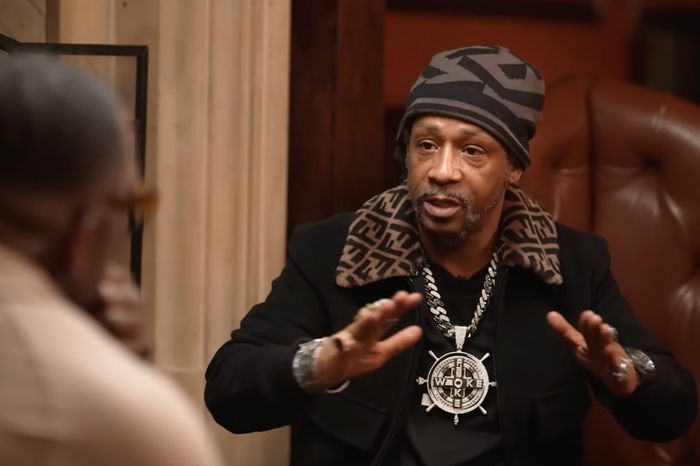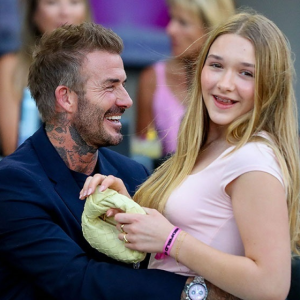Oprah Winfrey vs. Katt Williams: Allegations, Threats, and Hollywood Secrets
The conflict between Oprah Winfrey and comedian Katt Williams has taken center stage in the entertainment world, sparking widespread debate. In a recent video, Williams accused Oprah of being a “Hollywood handler,” a claim that has escalated tensions and put Oprah’s reputation under a glaring spotlight. Williams’ criticism, paired with others like actress Taraji P. Henson, has painted Oprah in an unflattering light, raising questions about her true role within the entertainment industry and the sincerity of her advocacy for Black artists.
Katt Williams Calls Out Oprah as a “Handler”
Katt Williams, known for his unapologetic and often controversial humor, has never shied away from speaking his mind. This time, his target is one of the biggest figures in media—Oprah Winfrey. Williams has accused Oprah of acting as a “handler” for Hollywood elites, someone who helps control and suppress Black artists rather than uplift them. He claims that Oprah’s actions are not in line with her public persona as an advocate for civil rights and Black empowerment.
Williams points to historical moments where Oprah allegedly undermined other Black entertainers, such as rapper Ludacris, who appeared on The Oprah Winfrey Show to promote the film Crash. Ludacris has previously spoken about how he felt singled out during the interview, claiming Oprah criticized his music while avoiding similar scrutiny of his co-stars. Williams also brought up Oprah’s seemingly contradictory stance on Michael Jackson—initially expressing support, only to change her position amid renewed accusations after his death. To Williams, these actions reflect Oprah’s role in managing narratives to align with Hollywood’s elite rather than supporting her community.
Hypocrisy Allegations and Harvey Weinstein Controversy
One of Williams’ most damning allegations against Oprah is her association with Harvey Weinstein, a film producer who has been accused by numerous women of sexual misconduct. Williams argues that while Oprah has portrayed herself as a champion of the #MeToo movement, her longstanding friendship with Weinstein speaks otherwise. Photographs of Oprah and Weinstein together at various industry events have been circulating for years, and many critics, including Williams, see this as proof of Oprah’s willingness to overlook misconduct when it involves powerful individuals in Hollywood.
These accusations highlight a potential hypocrisy in Oprah’s philanthropic image, particularly in her advocacy for survivors of abuse. For someone who has publicly shared her own experiences with sexual abuse, Oprah’s closeness with Weinstein raises uncomfortable questions about where her true loyalties lie.
Taraji P. Henson Joins the Criticism
The criticism from Katt Williams is not an isolated incident. Actress Taraji P. Henson also recently voiced her disappointment with Oprah, criticizing her lack of support for Black women in Hollywood. According to Henson, Oprah’s influence could be used to create significant opportunities for Black women, yet she believes Oprah has fallen short in this role.
Williams echoed Henson’s claims, suggesting that Oprah has actively worked to control successful Black artists, keeping them underpaid and undervalued. These accusations imply that Oprah’s empire is built not only on her own talent and hard work but also on ensuring that other Black artists remain in a subordinate position, thereby maintaining her status as the top figure in Black entertainment.
Threats and the Attempt to Silence Katt Williams
The video also claims that Oprah has allegedly threatened Katt Williams due to his outspoken criticism. Rumors suggest that Oprah is trying to discredit Williams before he can reveal any more damaging information about her or her connections within Hollywood. Such allegations, if true, paint a picture of a media mogul willing to go to great lengths to protect her image.
Williams is not the first person to allege that Oprah uses her power and influence to control narratives in her favor. However, his willingness to speak openly about it has put him at significant risk. In an industry where silence is often bought or coerced, Williams’ decision to speak out against Oprah could have serious repercussions for his career, which makes the alleged threats even more concerning.
Public Opinion Divided
As these allegations continue to circulate, public opinion seems to be shifting. For years, Oprah has been seen as a beacon of hope and empowerment, especially within the Black community. She has built schools, donated millions to charity, and inspired countless people with her story of rising from poverty to immense success. Yet, these recent criticisms are challenging that narrative.
Many of Oprah’s fans are now questioning whether her carefully curated image hides a more complex and perhaps darker reality. Could it be that Oprah, the very person who has been celebrated for breaking down barriers, has in fact been a gatekeeper, deciding who gets to succeed and who doesn’t?
While some fans remain staunchly in Oprah’s corner, dismissing Williams’ comments as bitter attacks from a disgruntled comedian, others are beginning to take a harder look at Oprah’s actions over the years. The accusations from Williams and Henson have led to a larger conversation about the responsibilities of those in power within the Black community and whether Oprah has truly lived up to her role as a leader and advocate.
What This Means for Oprah’s Legacy
Oprah Winfrey’s legacy is undoubtedly one of incredible achievement. She broke barriers for women of color in media, created a platform for important conversations on race, abuse, and health, and became one of the most influential women in the world. However, the revelations from Williams and others suggest that her legacy may be more complicated than it seems.
The entertainment industry is currently in a period of reckoning, with numerous high-profile figures being scrutinized for their behavior and the power dynamics they have perpetuated. Oprah is no exception. As more people come forward to share their experiences, the public is forced to reconcile the Oprah they know—the empathetic talk show host and philanthropist—with the Oprah described by her critics, who accuse her of manipulation, hypocrisy, and control.
The Road Ahead: A Call for Accountability
As the video ends, viewers are left to ponder the allegations against Oprah Winfrey. Katt Williams’ accusations are serious, and they raise important questions about accountability in the entertainment industry. If even the most celebrated figures are not held to account, what does that mean for the future of Hollywood and its treatment of Black artists?
The truth behind these allegations may never be fully known, but what is clear is that the public is no longer willing to give even the most beloved celebrities a free pass. The calls for transparency and accountability are growing louder, and Oprah, like others before her, may need to address these issues openly if she wants to preserve her legacy.
As for Katt Williams, his willingness to speak out, despite the potential consequences, reflects a broader shift in the entertainment industry—a move towards breaking the silence and challenging those in power. Whether Oprah chooses to respond, and how she does so, will be telling of where she stands in the new Hollywood that is emerging—one where influence must be wielded responsibly, and no one is above reproach.






